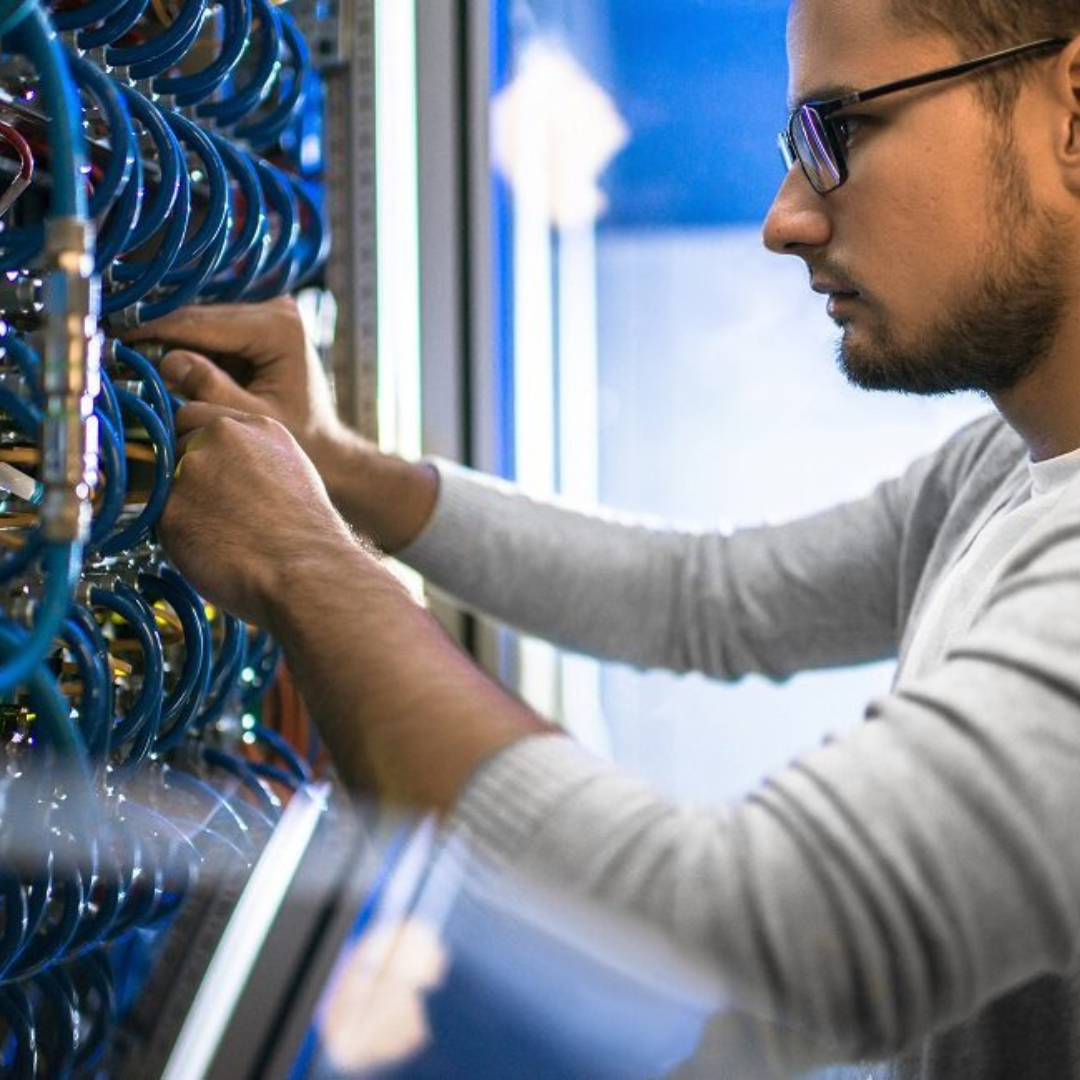The term “MSI” has been floating around the industry, but what does it really mean? Looking at the core definition, a Master Systems Integrator (MSI) is a professional or integration company that specializes in integrating and managing complex building automation systems (BAS) and other subsystems within a building. The list comprises lighting, HVAC, access control, network/IT, audio and video, security, fire protection, and energy management.
An MSI will thus guide the client through the process of combining these multiple disparate systems into a single, unified system. This can be done for various reasons, such as to improve efficiency, reduce costs, eliminate overlapping scopes between trades, and improve security. They ensure all building systems work together seamlessly to provide optimal performance, energy efficiency, and occupant safety and comfort.
The job of an MSI is thus to deeply understand the various systems and subsystems that go into creating smart buildings. The systems within a smart building are then integrated into a cohesive, efficient, and typically viewable through a web-based dashboard by the building operators.
Role of a Master Systems Integrator
An MSI’s role begins in the early stages of building design, where they work closely with the design team to develop a cohesive plan for integrating all building systems. They are responsible for the project management, implementation, and commissioning of the systems, as well as training facility managers and building occupants on the use and maintenance of the systems.
MSIs thus act as a bridge between the various contractors and vendors involved in the building-automation-systems project. They are responsible for ensuring that all subsystems work together as intended and that data is communicated effectively to achieve maximum energy efficiency and system performance.
Building operation data points can also be aggregated into a single pane of glass, allowing building owners and operators to visualize building performance, expose operational inefficiencies, maintain occupant comfort, and reduce operating costs.
Why is an MSI Important for Businesses?
MSI can provide several benefits for businesses. Some of these include:
Improved efficiency: By integrating multiple systems, businesses can streamline and improve their operations. For example, integrated IT and OT (Operational Technology) systems can help building owners/operators manage their energy use better, and reduce their carbon footprint.
Reduced costs: An MSI can help businesses to reduce costs in several ways. For example, by integrating multiple systems, businesses can eliminate the need for numerous vendors and reduce the required IT infrastructure.
Eliminating overlap: Building owners/operators can eliminate multiple sets of networking equipment being installed in the same locations for different purposes. An MSI will have one centrally managed network on which all trades will operate their equipment.
Improved security: MSI can help businesses to improve their security by integrating multiple security systems. For example, an integrated security system can help businesses to monitor their premises better and prevent unauthorized access.
Why Hire an MSI?
In today’s competitive environment, building owners must find ways to improve their efficiency, reduce costs, and improve their security, all while increasing the comfort and safety of their building’s occupants. An MSI can help businesses to achieve all of these goals.
By integrating multiple systems, businesses can streamline their operations and improve efficiency. This can increase productivity, reduce costs and improve customer service.
MSIs can help businesses improve their security by integrating multiple security systems. This can create a more secure environment for employees, customers, and assets.
An MSI’s primary goal is to ensure that a building’s automation systems work synergistically to save energy, reduce costs, and improve occupant comfort and safety. Their work is vital in managing the complexity of modern building systems to build more innovative, efficient, and sustainable buildings.
The Future of MSI
As buildings become increasingly complex and interconnected, the need for a single point of contact for all building systems will only grow. MSIs can provide this point of contact, as well as the expertise and experience necessary to design, integrate and manage complex building systems.
In addition, MSIs can help building owners and operators to save money on energy costs, improve occupant comfort and productivity, and reduce maintenance and repair costs. As the demand for MSI services continues to grow, the industry is expected to experience rapid growth in the coming years.
Key trends
Here are some of the key trends that are shaping the future of MSI:
Healthy Building initiatives: MSIs can assist building owners and operators with compliance with healthy building programs such as Underwriters Laboratories Verified Healthy Building certification. These programs help to assess and certify buildings as meeting certain standards for indoor air, water, lighting, acoustic, and building hygiene quality. The program aims to help building owners and companies reduce the risk and cost associated with occupant health issues. An MSI can provide data on all of these criteria and visualization
Rise of the Internet of Things (IoT): The IoT is connecting a wide range of devices and systems in buildings, creating a vast amount of data. MSIs can help building owners and operators make sense of this data and use it to improve building performance.
Need for sustainability: Building owners and operators are under increasing pressure to reduce their environmental impact. MSIs can help them to achieve this goal by designing and integrating building systems that are more energy-efficient and sustainable.
As these trends continue to develop, the demand for MSI services is expected to grow. MSIs will play a vital role in helping building owners and operators manage complex building systems, save money and improve building performance.

